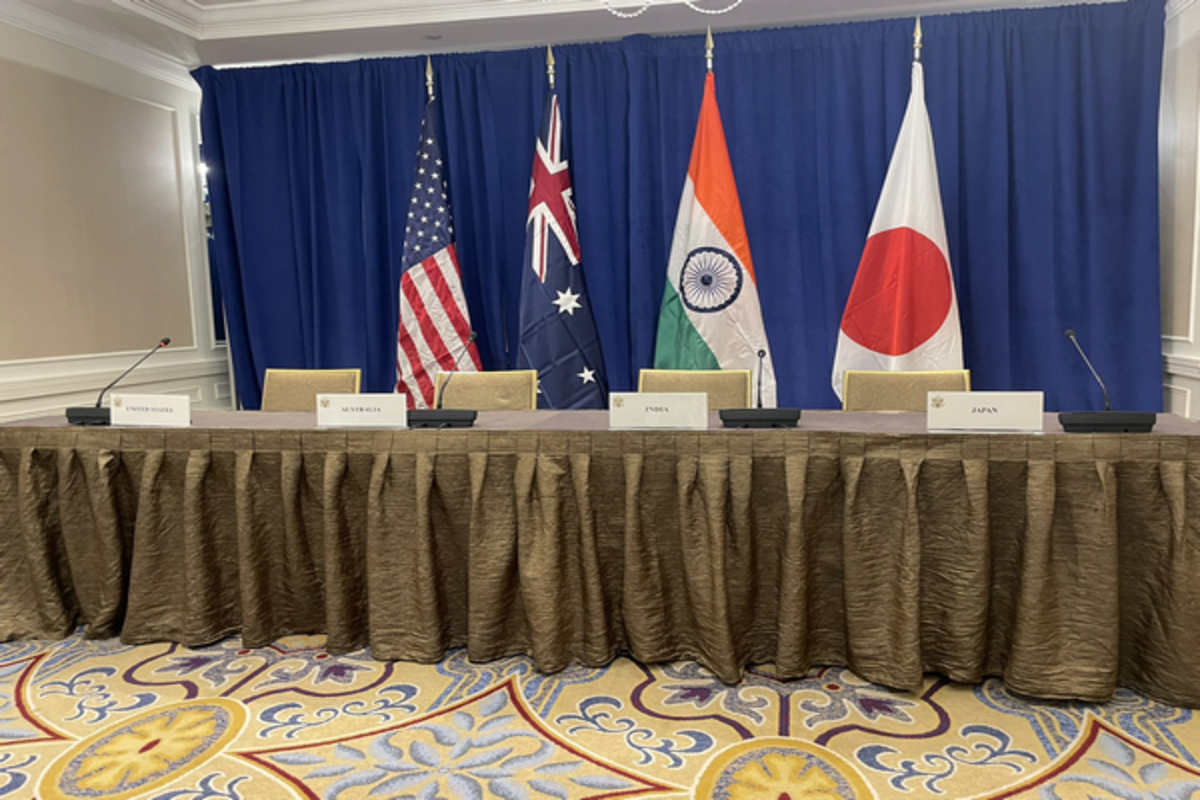The Quad members–India, Australia, Japan and the United States–discussed the importance of enhanced cooperation in the field of cybersecurity while reaffirming an Indo-Pacific that is resilient and equipped against cyberattacks.
The third in-person Quad Senior Cyber Group (QSCG) Principal Meeting took place in Tokyo on December 5-6. The National Cyber Security Coordinator, Lt General MU Nair, represented New Delhi at the meeting.
Advertisement
Along with him, Hamish Hansford, Deputy Secretary Cyber and Infrastructure Security of Australia’s Home Affairs; Keiichi Ichikawa, Deputy National Security Advisor and Assistant Chief Cabinet Secretary of Japan; and Anne Neuberger, Deputy Assistant to the President and Deputy National Security Advisor for Cyber and Emerging Technology participated at the event.
“Together, we reaffirm our steadfast commitment to an Indo-Pacific that is resilient and equipped to detect and deter cyber-attacks,” read the joint statement of the Quad Senior Cyber Group.
It added that the Quad countries are among the world’s leaders in advancing digital technology, connectivity, and resilience and are undertaking efforts to provide capacity building in the Indo-Pacific region to strengthen the ability to defend their government networks and critical infrastructure from cyber disruptions.
The Quad partners also reaffirmed the application of international law to cyberspace and expressed serious concern about cyberattacks in the region on critical infrastructure. They also welcomed progress on the Quad cyber initiatives.
“We reaffirmed our support for the Quad Cybersecurity Partnership: Joint Principles, including through work done in Secure Software, Cybersecurity of Critical Infrastructure, Supply Chain Resilience and Security, and Cyber Awareness through the Quad Cyber Challenge events to encourage participants across the Indo-Pacific to enhance their cyber security and cyber awareness,” the joint statement read.
During the meeting, the Quad partners welcomed the idea of sharing cyber resources through capacity-building projects to improve the security of infrastructure in the Indo-Pacific.
They all recognised that a safe and secure cyberspace contributes to a healthy and secure society and that international cooperation is key to this.
The Quad partners shared their recognition that cyberattacks have been increasing in frequency and sophistication.
In the wake of this, they discussed the importance of enhanced cooperation in securing the resilience of information technology (IT) and operational technology (OT) systems in critical infrastructure, ensuring mutual recognition of Quad nations’ labelling schemes for cybersecurity of Internet of Things (IoT) products, and the use of critical and emerging technologies such as artificial intelligence and machine learning.
They also reaffirmed the need for reliable, secure and resilient supply chains for critical sectors.
The Quad partners discussed fields of cooperation necessary to realise secure and resilient cyberspace in the region, including digital infrastructure and connectivity such as undersea cables, telecommunications networks, and cloud services.
They affirmed their commitment to continue working together with Indo-Pacific countries to deliver practical outcomes that will support capacity building in the region through the QSCG.
“We reaffirm our commitment to leveraging Quad partners’ respective strengths and resources to progress Quad cyber initiatives to promote a more secure cyber space and deliver Quad Leaders’ vision for a free and open Indo-Pacific that is inclusive and resilient, with a focus on the next Quad Leaders’ Meeting,” the statement added.











